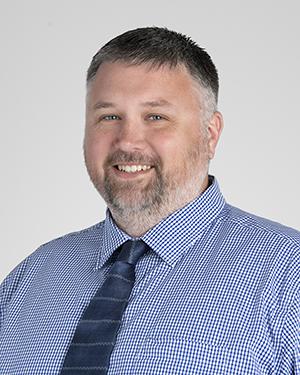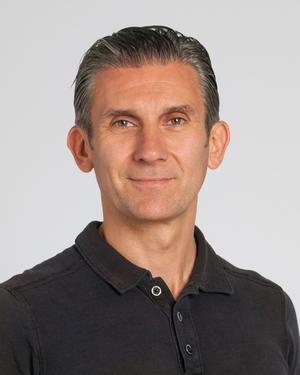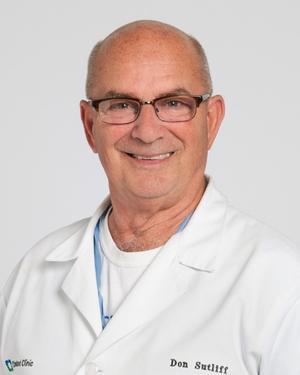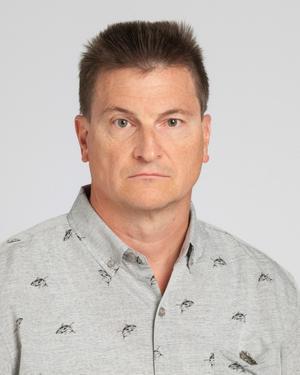Research Technology & Services
Mechanical Prototyping Core
-
Mechanical Prototyping Core
- About
- Services
- Portfolio
- Acknowledgment Guidance
About Us
The Mechanical Core is highly skilled in a variety of fabrication, customization and repair services for mechanical devices and equipment. We are proficient in precision machining of metals and plastics, welding of structural and exotic metals, instrument refurbishing and mechanical repair.
Our personnel can work from concept sketches to design and fabricate new devices, test research fixtures and equipment. Documentation of the newly created part or device is also available through two-or three-dimensional computer-aided design (CAD) drawings. We also use SolidWorks and AutoCAD software. CAD drawings can be converted into computer-aided manufacturing (CAM) programs that are directly fed into the Computer Numerical Control (CNC) machines to fabricate the desired parts or can also manufacture with a variety of manually machines depending on the complexity of the parts geometry.
To recognize the Medical Device Solutions Mechanical Prototyping Core personnel or technology for support of your research, please refer to the Acknowledgment tab.
Contacts








Services
Fabrication Capabilities
The equipment at our disposal allows us to create high-precision devices for a wide variety of clinical or research applications. Examples of devices that have been produced by this facility include acrylic cranial windows, a brain tissue environmental chamber, a myocardium rapid-freezing device and a mitral valve repair frame. With the combination of our trained technicians and advanced equipment, we can help you develop a custom device that will enable you to complete projects or procedures. Some of our machining equipment include:
- CAD Computer-Aided Design: Our main software is Solidworks. We also use AutoCad.
- CAM Computer-Aided Manufacturing: Our main software is MasterCam. We also use FeatureCam.
Packed into our 5000 square foot facility are four CNC vertical machining centers (VMC). SV-400 Mori Seike 5 axis Mill, a four axis Mori Seike SL-150 Lathe, 4 axis Mitsubishi Wire Electro Discharge Machine (WEDM) shown, Bridgeport EZ Path Lathe, Two Bridgeport EZ Path Mills, Three axis F1012E Precision Mill, 2 axis Precision Lathe, and a Hass VF2SS 4 axis vertical machining center.
- Device design and prototyping
- Device testing
- Compression molding & vacuum forming
- Polymer mold design and fabrication
- Polymer procedure & process development
- AutoCAD, Solid Edge and Pro/ENGINEER drawing documentation
- Provide polymer and biomaterial process control specifications
- Consulting and technical training
- Milling/turning/drill/ream/profiling and contouring: stainless steels, exotic materials, and polymers
- CNC WEDM electrically machines any conductive material, no matter the hardness and can hold very tight tolerance and surface finish
Currently we use a Next Engine 3D laser scanner, Mitutoyo Profile Projector, Rockwell Hardness tester and a myriad of the regularly found machine shop inspection tools.
- Vertical Mills
Five vertical milling machines combined with machine fixtures and tooling increase the versatility of our milling machines. As a result, we can generate geometries as complex as conventional milling allows. - Lathes
Four engine lathes of various sizes are specially suited for high precision custom work. Capabilities range from turning large diameters (21") to holding extremely high tolerances. - Multiple Welding Disciplines
Our TIG (Tungsten Inert Gas), MIG, Plasma welding and cutting, Oxy-Acetylene and Arc welders allow us to weld a variety of materials including stainless steel, steel, aluminum and titanium. We are well versed in Brazing, silver soldering and tin soldering. We also have a Laser Star Micro laser welder for intricate precision welding. - Precision Surface Grinding
Three types of grinders allow us to achieve lustrous surface finishes on hardened materials such as chromium cobalt, hardened tool steels, carbides and heat-treated stainless steels while holding extremely close tolerances. - Surface Finishing
The look of the final product is what matters giving devices a good looking outer finish we use either one of our two bead blasting methods. We have aluminum oxide beads that give a slightly dimpled finish, or silicon carbide chips that give a deeper etched finish. To add text or designs to any metallic face we have an electrical etcher that burns the desired display into the surface of the device. Polishing and buffing to mirror finish is our signature. - Heat Treating
With our high precision temperature-controlled programmable electrical furnace, we can provide a range of heat treatments for steel items up to 4" x 6" x 12". We also work closely with local heat treaters to fill voids where our capabilities leave off. - Shears/Breaks
Standard metalworking equipment is available for shearing, bending and forming sheet metal and bar stock. - Plastic shop
Our plastic shop is where most of the fabrication of acrylic, polycarbonate, ultem, polysulfone and other plastics is performed. The shop also handles wood in order to make fixtures or low devices for various research projects.
Instrument Manufacturing and Refurbishing
Old, dull and/or damaged instruments can be returned to like-new condition.
We sharpen, polish, weld, straighten and make replacements for broken or lost components. Instruments can be uniquely labeled using our etching process.
Custom instruments can be designed and manufactured, and we can make copies of discontinued items for clinical or research use. Most of our instrument services can be performed in one day or less if required.
Mechanical Device Design and Development
Core personnel can provide as much design assistance as is required. We accept jobs ranging from someone needing a simple part in a hurry to working with your detailed engineering drawings. We can provide input on materials, geometries, drive mechanisms and instrumentation. Often hand-drawn sketches are sufficient, but full computer-aided design capabilities are available.
- 120+ combined years of experience in the design and fabrication of mechanical devices
- 70+ years experience with medical devices
- Capabilities include:
- Ability to take ideas from concept to finished prototype
- Technical drawings to document design
- Cardiovascular, orthopaedic, and surgical devices
- Multiple types of fixtures or devices required by researchers
Portfolio
Client: Susan D’Andrea, PhD, and NASA
Services Provided: Designed & Constructed Treadmill / Electrical / Machining / CAD / CAM Welding of Aluminum & Steel / Pneumatics.
The Mechanical Core designed and constructed an innovative treadmill that may help astronauts keep their motor skills sharp after long weightless journeys. The treadmill has two independently operated treads with actuators at each end that can raise and lower vertically, incline and decline, and change speeds. It also has a virtual reality screen that immerses the user into an environment ranging from walking down a path, stair climbing or hiking along a curved trail. Developed as a proof of concept, the device will let astronauts simulate a walk, for example, on the Appalachian Trail, walking up and down hills, around curves and occasionally stepping over rocks and logs. Whatever happens on screen is reflected in the speed and pitch of the treadmill. The treadmill was developed to address issues related to deconditioning of the neurovestibular system in weightless environments. The neurovestibular system consists of visual (eyes and perception), vestibular (inner ear and balance) and proprioception (muscles and position) signals and helps human beings maintain their balance and stability while walking and moving on Earth. But in space, this is a problem for astronauts as they do not know up from down since gravity is negligible. This produces visual disorientation, thinking things are upside down when they are not. It also causes space motion sickness and decreased coordination. Upon returning to Earth, astronauts have balance disturbances, disorientation, and impaired coordination and locomotion. Their bodies have to readjust upon entering space and returning to Earth.
Client: Cleveland Clinic
Services Provided: Mechanical Prototyping
Plastic Assembly. This device is used to fractionate cells. Antibody-magnetic particle conjugates are used to separate cells into separate compartments.
Acknowledgment Guidance
Acknowledgments and Authorship
All work performed by Cleveland Clinic Shared Laboratory Resources should be acknowledged or considered for co-authorship in scholarly publications, presentations, and posters. By acknowledging shared resource expertise and instrumentation, you play a critical role in supporting our mission to maintain access to cutting-edge technology and services on our campus into the future.
The Cleveland Clinic Shared Laboratory Resources participate in the Research Resource Identifier Initiative to promote transparency and reproducibility of scientific methods. Please include the unique Research Resource Identifier, RRID number, in the Methods or Acknowledgments sections of your manuscripts.
Example Acknowledgments:
- We acknowledge the Cleveland Clinic Research Medical Device Solutions – Mechanical Prototyping Core (RRID: SCR_026824), especially [staff name], for their assistance with [technique/technology].
- This research was supported in part by Cleveland Clinic Research Medical Device Solutions – Mechanical Prototyping Core (Cleveland, OH) (RRID: SCR_026824).
Getting Started
View prices and request services through iLab. Register for an iLab account and visit the desired core's page to get started.
Questions? Contact Us